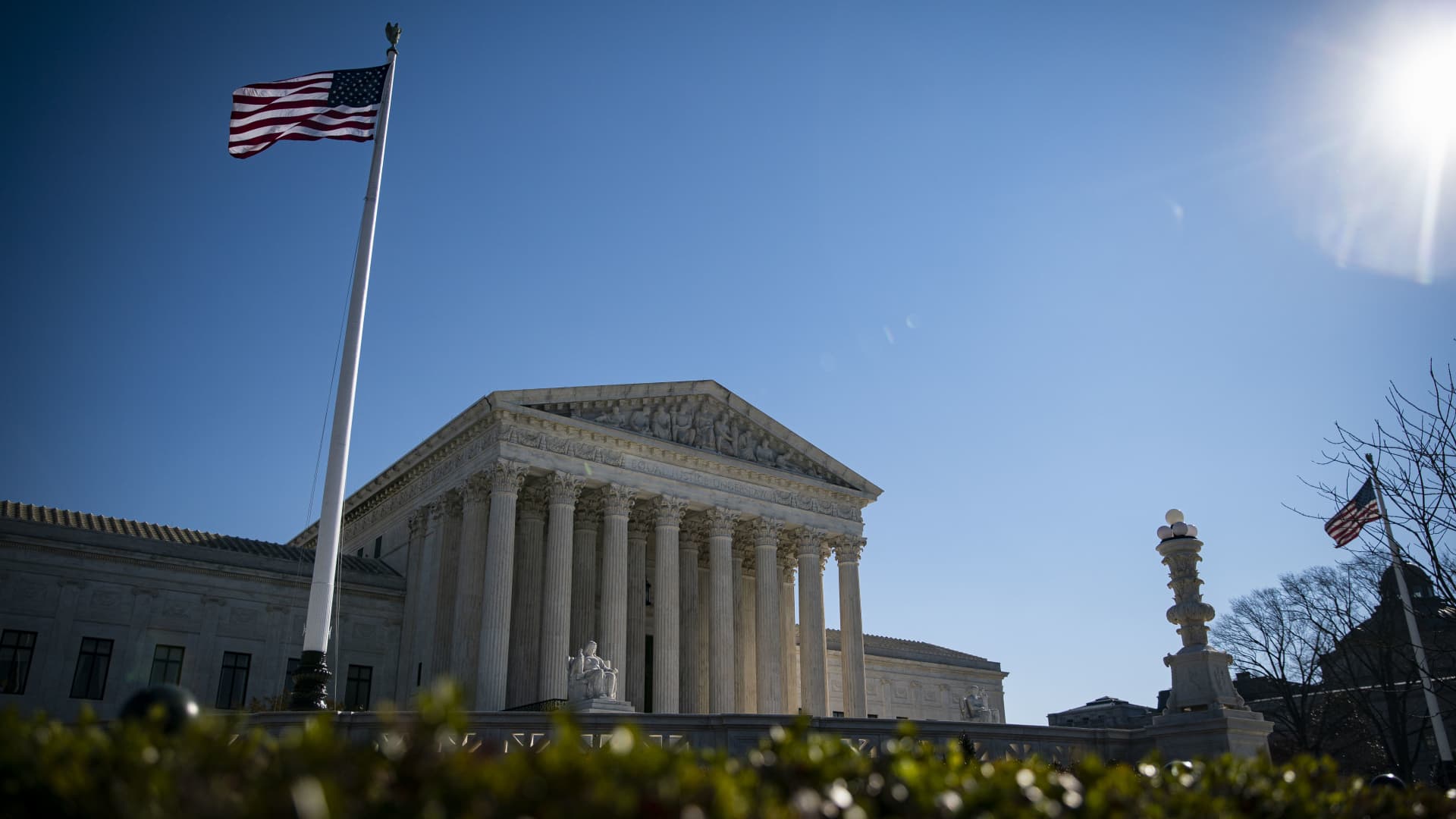Efforts to expand a federal program for disabled, elderly and blind Americans suffered a setback on Thursday when the Supreme Court ruled that Puerto Rico residents should be excluded from receiving those benefits.
The program, called Supplemental Security Income, or SSI, currently provides monthly checks to about 7.7 million Americans who qualify. But because it is aimed at people with low income and few resources, the program comes with strict income and asset limit rules.
Some Congressional lawmakers have proposed updating the program, which has regulations that have not been updated since it was created in 1972.
Last year, the House of Representatives included one key change — expanding SSI to residents of U.S. territories — when it passed Democrats’ Build Back Better package.
More from Personal Finance:
What we learned from the Biden, Harris tax returns
Supreme Court rejects states’ challenge to SALT limit
The average tax refund this year and what you should do with yours
That change would include residents of Puerto Rico, Guam, the U.S. Virgin Islands and American Samoa. Residents of the Commonwealth of the Northern Mariana Islands are already eligible to receive SSI benefits.
However, that legislation has since stalled on Capitol Hill.
On Thursday, the Supreme Court upheld the federal law that denies Puerto Rico residents access to SSI benefits. A lower appeals court had previously ruled that excluding Puerto Rico residents from SSI was unconstitutional.
The Supreme Court’s ruling is a big blow to the estimated 436,000 people in Puerto Rico who may potentially qualify for SSI, according to Kathleen Romig, director of Social Security and disability policy at the Center on Budget and Policy Priorities.
“It would make a big difference to these people, because it’s people who are by definition poor and have very low savings,” Romig said. “Even having a few hundred dollars more a month could make an important difference.”
Puerto Rico residents may access a program called Aid to the Aged, Blind, and Disabled, or AABD, though it is a more limited than SSI, Romig noted.
Because Puerto Rico residents pay payroll taxes that help fund Social Security and Medicare, those who have enough earnings to qualify may also claim Social Security disability benefits.
However, SSI is funded through general revenue, which means Puerto Rico residents are not necessarily directly contributing to the program, an issue that came up during the Supreme Court’s debate.
That program was designed precisely for people who cannot pay taxes, because they can’t work, by definition.Sergio M. Marxuachpolicy director at the Center for a New Economy
Justice Brett Kavanaugh noted in his decision that because Puerto Rico residents are not held to the same requirements as U.S. mainland residents with regard to federal, estate or excise taxes, they can be treated differently.
“The problem with that analysis in this context is that program was designed precisely for people who cannot pay taxes, because they can’t work, by definition,” said Sergio M. Marxuach, policy director at the Center for a New Economy, a non-profit, non-partisan think tank in San Juan, Puerto Rico.
The program was designed for people who qualify for it, whether they live in Montana, New York or San Juan, Marxuach said, due to the fact they are disabled, elderly or blind.
“If you go to the Congressional intent, it was precisely to help that group of people across the nation,” Marxuach said. “Using that as a rationale basis for the different treatment does not make any sense.”
Without access to SSI, some Puerto Rico residents may fall through the cracks when it comes to federal government benefits.
“There is this gap for people who don’t have a qualifying work history for Social Security, who qualify only for low benefits and would have supplemental benefits through SSI,” Romig said.
Moreover, because receiving SSI benefits often automatically qualifies recipients for Medicaid, it could make it more difficult for Puerto Rico residents to access health coverage, as well, she said.
“It’s inequitable to have American citizens, just because of their address, lose access to an important benefit,” Romig said of SSI.
There is also a “racial and ethnic inequity that is present when you exclude territories as opposed to the mainland,” she said.
Rebecca Vallas, a disability advocate and senior fellow at The Century Foundation, a progressive think tank, also expressed disappointment with the decision.
“The Supreme Court’s decision to continue the nation’s long, racist history of excluding Puerto Rico residents from the SSI program is as shameful as it is disappointing,” Vallas said in a statement.
“America should not be in the business of discriminating against its own citizens — especially when it comes to something as fundamental as eligibility for survival income programs like SSI,” she said.
